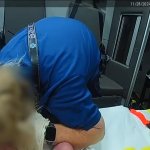NORTH CAPE MAY – Pete DiGennaro hopes to put a face to kidney disease. The single parent of a teenage son, DiGennaro was selected by the American Kidney Fund (AKF) to participate in the organization’s sixth annual Kidney Action Day on Capitol Hill March 4.
DiGennaro and 11 other patient-advocates from across the nation hope to raise awareness of kidney disease by going to Capitol Hill and participating in a variety of events in Washington, D.C.
“When someone has kidney disease,” DiGennaro said, “there is nothing visible to show that he or she is disabled. You look fine. You can’t see how a chemical imbalance in your body looks, or how it looks to have nutrition removed from your blood through dialysis. I’m hoping to put a face to kidney disease and raise awareness within Congress to hopefully get some funding.”
At age 12, DiGennaro was diagnosed with a streptococcal infection that eventually led to kidney disease. He had hoped to join the Navy, but had to begin life-sustaining dialysis right before his 21st birthday. After almost nine years on dialysis, and after having a kidney transplant that lasted 13 years, he is back on dialysis, receiving treatment three times a week, for four and one-half hours each time. He’s also back on the transplant list, awaiting another kidney, if one becomes available.
“It’s like having a baby that you can’t push out,” DiGennaro said, describing how it feels to undergo dialysis. “The pressure is intense as you have to lay still with a needle in your arm, or legs or chest, depending on where the best vein is. You are reclining in a chair, hooked up to a machine that basically is removing your blood, filtering it to remove all the poisons that your kidneys would normally take out, and then returning the blood to your body without any nutrition in it.
“You are tied to a machine for that entire time,” he stressed. “You can’t move.”
Although DiGennaro was diagnosed at a young age with renal failure, he didn’t realize how bad the situation was until he tried to join the military. “I was diagnosed with N-stage renal failure and things happened pretty quickly from there. At that age, I was pretty bull-headed and just took it all in and didn’t dwell on things. I wasn’t going to let it take over.”
With a 16-year-old son who is active in sports and “all the other things in life,” DiGennaro doesn’t let the disease control him. “I do what I have to do and am very active in the community here, and very active in my son’s life. Because I’ve had to deal with the disease for so long, I’ve become very educated about what I need to do and what I can’t do. It’s become second nature for my son as well.”
DiGennaro serves as financial secretary to the Knights of Columbus, having retired from a local cable company some years ago. Born and raised in Philadelphia, he spent summers in the Cape May area.
Today he still participates in fundraising charity events and other activities in both Cape May County and the Philadelphia area to bring awareness to the impacts of kidney disease.
“Just because you have a transplant doesn’t make the disease go away,” DiGennaro said. “I think there’s a misconception about the disease because it’s not visible. For example, everyone hears about heart or liver disease but there are a million people with kidney disease who don’t even know it. I hope to bring increased awareness about the disease, and put a face to it.”
AKF is the nation’s largest not-for-profit organization serving people with kidney disease and is a leader in driving advocacy for kidney patients across the country.
DiGennaro is a member of the AKF Advocacy Network, which includes more than 4,500 kidney patients and caregivers from all 50 states.
The annual Capitol Hill event provides patient-advocates the opportunity to meet with lawmakers on issues of importance to the 31 million Americans who are living with kidney disease, and also to raise awareness for the one in three Americans at risk of the disease.
During meetings with Congressional offices, DiGennaro and other patient-advocates will focus on the Chronic Kidney Disease Improvement in Research and Treatment Act, legislation that would improve care for individuals with chronic kidney disease by addressing gaps in research; improve beneficiary access to treatment; and create economic stability for providers caring for individuals with chronic kidney disease. The original bill co-sponsors are still leading the bill – Representatives Tom Marino (R-Pa.) and John Lewis (D-Ga.).
“When I received my transplant, there was no funding available to help patients with medical costs or with the medicine that is needed after a transplant,” DiGennaro said. “I remember not having insurance and not being able to get any help from the Kidney Foundation. They basically told me to go to my church and ask for donations.”
The AKF does not receive any federal funding; individuals, corporations and foundations support it. It has helped more than one million low-income dialysis patients access life-saving medical care since its founding in 1971. Last year, AKF helped one in five dialysis patients pay for their treatment-related expenses.
DiGennaro also will meet with the office of Sen. Cory Booker (D-N.J.) and U.S. Rep. Frank LoBiondo (R-2nd) and will participate in AKF’s awareness-raising event for the public, featuring free kidney health screenings, fitness activities and educational materials about kidney disease.
“I’ve been through so much with this disease, and have seen so many changes over the years, but it’s still a young industry,” he said. “I’ve seen different techniques used at hospitals and dialysis clinics, and seen their different practices. I hope to increase awareness to get some funding available for patients.”
Many patients undergoing dialysis are alone, without advocates, according to DiGennaro. “They are so wiped out after dialysis that they’ll go home and sleep for the day. I urge people to volunteer their time or stop by a dialysis unit. Some people do dialysis at home, which means they are on the machine for eight hours. If you are alone, you could always use some help.”
One of the first things that DiGennaro does after a dialysis treatment is eat, replacing the nutrition that has been stripped from his blood. “I try to eat just about all day, and as I am cooking breakfast, I’m making dinner for my son and myself. I don’t really have the chance to sleep on the couch all day because the dialysis tires me out. I want my son to remember me as being involved in his life, not as someone with a disease who couldn’t participate.”
DiGennaro and his son also follow a healthy diet. “We don’t drink colas, for example,” he said. “We both drink a lot of water. I eat organically as much as I can. I can’t eat fresh potatoes unless they are cooked to release the potassium. I’ve learned how to make sure I eat the right things for myself, and for my son.
“Throughout my experience with kidney disease, I try my hardest to be the best role model I can be for my son,” said DiGennaro. “Having my son and being a voice for this disease through AKF allows me to stress the importance of quality care and quality of life for patients on dialysis.”
For information about the American Kidney Fund, visit www.kidneyfund.org.
To contact Karen Knight, email kknight@cmcherald.com.
Middle Township – As I have advocated before numerous times, all of the governmental monies generated by the legal sales of legal marijuana, should be applied to Pay property tax relief program for New Jersey…








